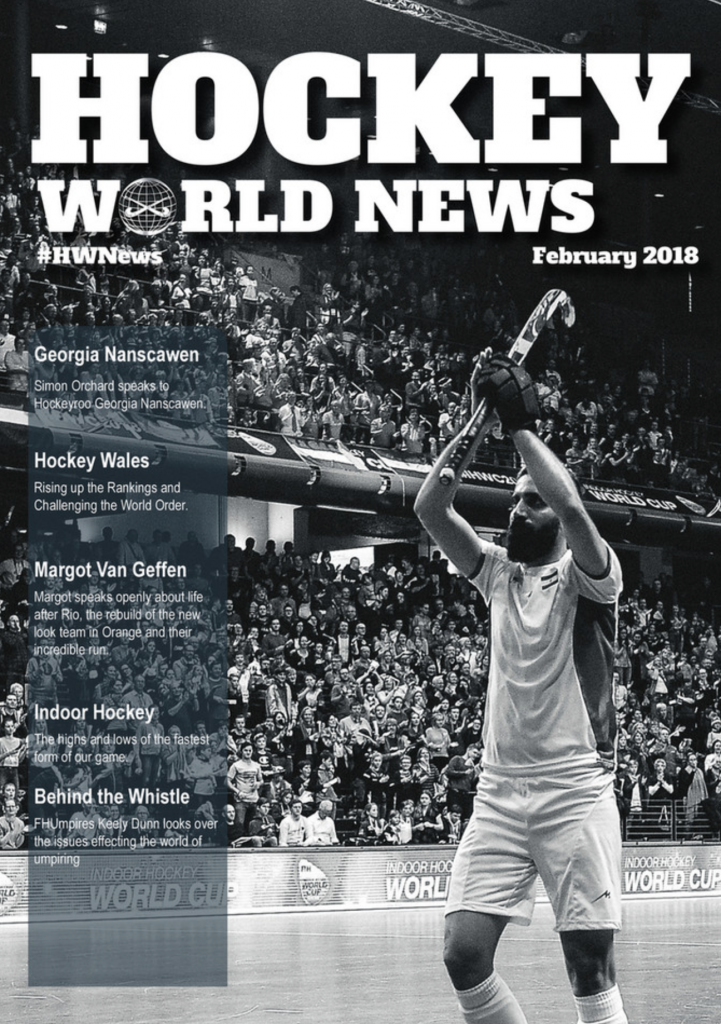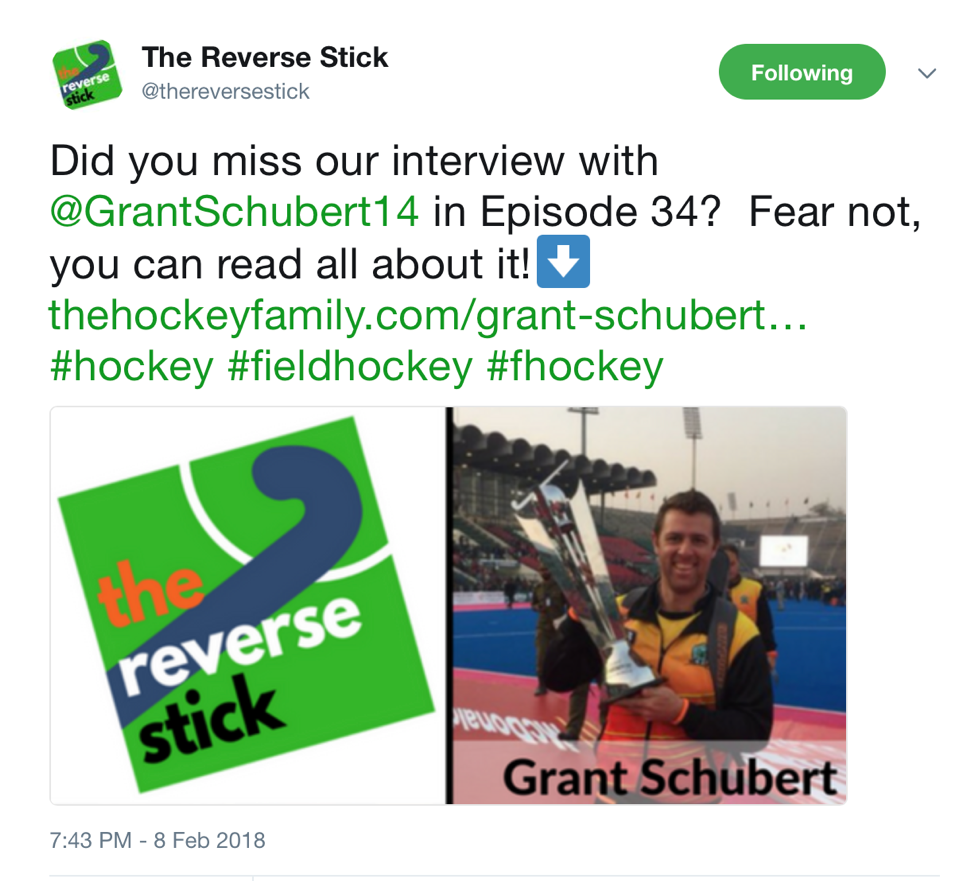
No umpires, no game.
We're in a crisis. At this stage of global hockey development, participant numbers in many jurisdictions like the UK and Argentina are exploding, the game is reaching new corners of the world and variations in the game which increase accessibility to people who previously couldn't participate. However, one component of hockey growth isn't keeping pace: that's umpiring.
Regional and national associations around the world are speaking up about current and projected shortages of umpires to fill scheduled matches at many levels. We just can't seem to get anyone to umpire, despite campaigns emphasising the fun and camaraderie, the life skills, the feelings of contribution and satisfaction umpiring can bring. We hashtag social media posts with #thirdteam, #umpirelife and even #umpiresareridiculouslygoodlooking, promoting that dammit, umpiring can be FUN.
You might realise that we're fighting one hell of an uphill battle, and if you've been listening to hockey commentators recently, you know it's the people with the mics who keep pushing us back down the hill.
I was listening to a recent episode of my favourite #globalhockeypodcast, The Reverse Stick. In Episode #34, my friends Matt Allan and John Lee were describing the local broadcast of a test match between the Netherlands and the Kookaburras in
“I'll take it out on Murray Grime: terrible, terrible, terrible decision. …Jake Whetton, barely anything in it, it was a free hit, ‘look at me,' 10 seconds to go, penalty corner, just to make the game interesting. Australia shouldn't be having to defend this corner.”
Now, no one is going to expect much more from an ex-Australian international who, by reports on TRS, has a personal grievance with Grime, and has repeatedly spoken out directly with scathing criticism of umpires (see the HockeyWorldNews Magainze Issue #2, “Professionalism Without Pay: The Modern Umpires' Catch-22”). What concerned me is that TRS's Allan and Lee then went on to support this line so much that they “loved it.”
“I thought it was great because it was a) it was someone speaking their mind, and we need that in hockey…” said Lee, and Allan backed that up saying there's “too many golf claps going on at games.” Lee continued that it “made for a great piece of commentary…it's what other sports thrive on, and we should thrive on that, the controversies…”
So here's where we are: celebrating when a commentator accuses an umpire of deliberately making an incorrect decision to draw attention to himself because the sport will thrive on the controversy.
Around the same time in the real world, a little tournament known as the Indoor World Cup was going on in Berlin. The FIH had tagged it as #indoorinsanity, and it entirely lived up to this billing. The dual women's and men's schedules totalled 88 matches, 44 of which were live-streamed by the FIH for free on their YouTube channel, and the full match replays are also available for hockey lovers and curious googlers to enjoy.
The FIH employed a single commentator, Dan Strange, to serve both play-by-play and colour elements to the broadcasts. He worked incredibly hard through 13+ on-air hours with minimal breaks, not to mention all the research and prep work he'd need. I was absolutely willing to give him a pass on his questions about indoor rules and interpretations because he was simply not in a position to get the information he needed to be better informed. At least, that was until the the women's final.
The rematch of every Indoor World Cup gold medal match ever contested by women was just about as fine a spectacle as you can imagine. Over 8,300 enthusiastic fans packed the arena, a significant portion of them obviously rooting for the home side against the arch-rival defending champion Dutch side. Fireworks, shooting flames, rocking music, chants, you name it: this was great entertainment and the teams were up to the occasion, playing magnificent hockey.

At just under 5 minutes into the second half, a Dutch attacker is put down to the floor by a German defender. The controlling umpire, Vilma Bagdanskienne, looks to her colleague, Sarah Wilson, who was at a perfect angle to see the play, and gives Vilma the penalty corner decision.
Unsurprisingly, the German players on the court and the bench were demonstrably upset, along with the coaching staff. The fans, feeding off their reaction and well, being good home fans, let their opinions be known. And feeding off all of this emotion, the voice of the FIH and play-by-play commentator had this to say after the play:
“Absolutely nothing at all, terrible decision, penalty corner Netherlands, from nothing at all. De Baat has duped the umpire on this occasion, and it’s a shame to see that happen in this indoor hockey World Cup final, but, of course, it is part of the game at times…”
Now, you might be thinking along the lines as my friends at TRS did and wonder what the big deal is? All of the umpires are adults, highly-trained, at the top of their games, surely they can handle a little criticism, right? If you disagree with that criticism then you get an argument, you get more attention and discussion, and that's all good for the game, isn't it?
Flat out, there was nothing constructive about either of these comments. Strange, who is otherwise consistently measured and fair in his comments about umpiring decisions, abandoned all reasonableness in a role where he was acting as the voice of the FIH and there were no other voices available to present other views. Orchard was his usual self and called into question an umpire's very reputation as fair by accusing him of being partial to his own ego and intentionally wrong.
So what of the listeners? The fans of the game who perhaps don't know at all for themselves what a correct or incorrect call may be? What will their conclusion be after hearing a person in a position of authority making that harsh judgment?
What about players who were thinking of picking up a whistle and hear this blistering condemnation, where Grime is accused of intentionally making the wrong decision for the sake of his ego? Or where Wilson, who had been awarded the trophy for FIH Umpire of the Year not seven days prior, is slated by a commentator with a poor angle from his post behind the table before he's even looked at the single replay available to him?
What about the 14-year-old umpire who attended a beginner umpire's camp the previous weekend and had been told players will shake their hands after the game, they're be appreciated for all they do and respect is paramount?
Who wants to subject themselves to this kind of treatment which appears to be permitted and perhaps encouraged by our sport's leadership?
What I find most interesting about these types of comments from media is that you don't hear this level of flat condemnation levelled against any other participant in the sport. A player will miss an open goal, and it's “that's so unfortunate, they really tried but couldn't get on the right end of that one,” rather than “that player just decided the result of this match by their poor decision to put that ball wide.” Or, “that penalty corner play was the worst decision by a coach, what a terrible effort by them, they've just lost the match for their team.”
It may happen in other sports, but that's simply not hockey. By and large, all of the people who watch hockey are players, and we get it. We understand that over 40 minutes of indoor or 60 or 70 minutes of field hockey, there are hundreds of decisions made along with hundreds of mistakes and successes, and therefore thousands of different directions the game can take from moment to moment. We've been a part of thousands of mistakes ourselves and we know what it's like to miss the tackle, to bungle the tackle or whiff on the shot. As amazing as Lisa Altenberg and Christopher Rühr are, we can see a little bit of ourselves in them, and that's why we love to watch the sport being played. It truly is beautiful!
Why is it so easy then to look at the umpires differently? Why are media and commentators okay with this blasting of character and ability, and wildly disproportionate allocation of responsibility? Very simply: because they aren't umpires.
If you haven't umpired, it's leagues harder to empathise with the person you see with the whistle. They're an “other”, not a person with goals, humour, family, friends, history, passion, commitment, faults and foibles. They're just an object. We as humans do this as a matter of ingrained reflex, often to much more terrible and destructive results, and I'm not trying to elevate this issue to that of much worse prejudices. What I'm saying is this is a natural impulse and one which is easy to give in to, and we do see it in many other sports with huge TV viewerships and sponsorship riches.
We can't give in. We need umpires desperately. We need umpires who will continue to give to the sport we love as we know the money isn't there to make it a lucrative career. It has to be richly rewarding in fun, challenging in positive ways, and promote personal growth. There is nothing to be gained by “othering” our umpires, and everything to be gained by treating us as we are–the third team, happily serving hockey for all.
#hockeyfamily

